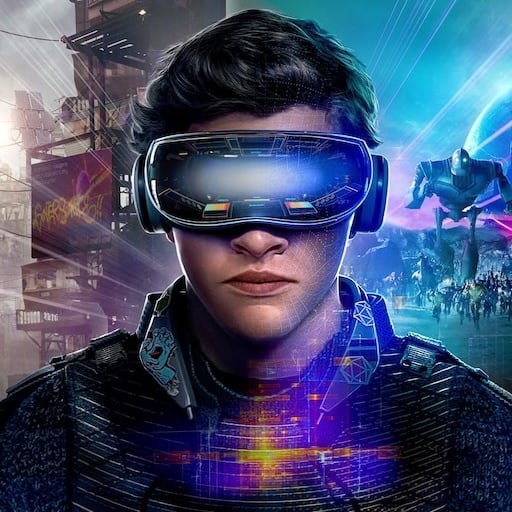

Some kinda battle fight war conflict.
I like art, Linux, Zelda games and modding Minetest in Lua


Some kinda battle fight war conflict.


Sony seems to be migrating out of the console market with good timing. The console itself is a loss and competing with emulation is another distraction. They have realized that focusing on games and peripherals are where they can profit most, it appears. As a pc user, I love their controllers and games so it’s a welcome shift.


Sensational claims require sensational evidence.
Carl Sagan, probably


Oh goodie, another product for Google to discontinue shortly after release.


Fossil fuels are absolutely the cause for extreme heat, who could have any doubt? Electricity is also capable of extreme heat so why don’t we use this more instead?


When games and stories about a dystopian future cross into becoming less dystopian and more engaging than reality.


Oily rectal discharge anyone?


Ni-MH production for EVs was effectively shutdown by Texaco and later Chevron through patent acquisitions.
https://en.m.wikipedia.org/wiki/Patent_encumbrance_of_large_automotive_NiMH_batteries


I guess if you don’t mind it becoming e-waste in a few years like the Q1 is near to being. You are practically at the mercy of Meta deciding what you can do with the device. There are some projects like ALVR to mitigate this somewhat, but these platforms are being locked down in more sophisticated ways with each generation.


AMD is far ahead in the performance/watt here. Intel seems to have lots of trouble providing even stable drivers for their XE/Arc graphics on Linux. Maybe their Battlemage generation will have better support but it’s not something I’d count on. So many of these handhelds try to shoehorn Windows into this form factor but MS business practices are anti-user at any opportunity to extract personal data or money.


Minetest engine and its games are great fun. It’s super easy to mod with Lua scripts and there is awesome documentation. ContentDB has an abundant selection of games and mods for anyone to customize their play.


Not unlike the species of it’s creators, go figure.


Immerse us in dlc and micropayments no doubt. We pay for PSN to have multi-player and they kill servers beloved by many. RIP LBP series


I found PROTON_LOG %command% insightful.


Look up Dr. Ronald L Mallett. This astrophysicist has some interesting takes on practical time travel. There’s a great interview with him by Fraser Cain of Universe Today.


Apparently, there are enough dimensions for this. We just need to observe them on a multidimensional stair case to really enjoy the phenomenon


Pretty sure there is no absolute universal position, everything in the universe being in motion relative to everything else as the universe expands, but that does not disprove your point anyways.


I hope having a transporter device is more like folding space than particle-scanning and reconstruction. The scanning and reconstruction would still be great for replacing or repairing lost or deteriorating structures. Regardless, I have a number of questions that come up as we learn more about how our brain might work.
If our brain is changed in (near) death how would we determine what was lost?
Could we even reconstruct consciousness (this could be also gradual, but what is the speed of consciousness)?
It seems more like we would have to gradually move our conscious processing from per-existing wetware to whatever replaces it (even more wetware). It should behave like our brain as much as possible, but I don’t think we could avoid being different from what we were.
Our own brain changes over time, do we think the way we did when we were 5? How different will we think far later in life (assuming our brain is at least healthy)? I think we would have to accept changes in our fundamental being (which is already very challenging). The difference is that not only could we live for longer physically, but within the pure consciousness an entire lifetime could be lived in less than a second. We experience this temporarily in dreams, or while experiencing a life threatening event such as an automobile accident or the final moments of death itself. What if that was extended over physical months, years, decades? How would we deal with such a inheritance, who would teach us how to cope and find meaning?
Would we want to live life at the speed of the physical world after such an experience?
They couldn’t be bothered to show a banana for reference.